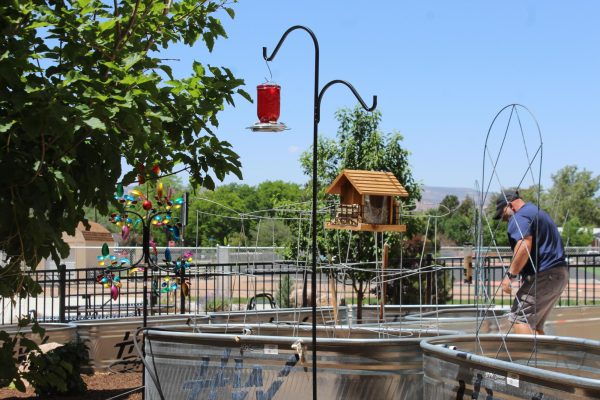COVID-19 Worldwide
Editor note* The reporter of this story has reached international sources to further her credibility. These people are from Thailand and the Netherlands. The students who were interviewed are exchange students at GJHS.
At the beginning of 2020, many believed this would be their year, but none believed a worldwide pandemic would take it away from them. With millions of cases and hundreds of thousands of deaths, Covid-19 has taken over 2020.
The United States of America is undergoing its federal quarantine with a shelter in place order, and the shutdown of any businesses deemed ‘unnecessary.’ While some have taken it quite seriously having gone weeks without seeing friends or even going to work, others are protesting for an end. It is believed that if the USA doesn’t take the quarantine more seriously, they will end up in a situation like Italy, where leaving your house at all goes against the lockdown.
“Losing the social events and interactions I was excited for is probably the worst part,” Grand Junction High School senior Chris Hayes said.
While students all around the nation are experiencing cancelations, the senior class of 2020 is losing events like prom, graduation, and spirit events that high schoolers look forward to for all four years of their schooling.
But while students like Hayes are missing events, others are losing jobs.
“My mom is now unemployed because her work was forced to close,” said Hayes.
Other countries like the Netherlands, who have 33,000+ cases, have undergone similar procedures toward the virus. Guus Van Poppel, 18, explained the voluntary lockdown in his country, and the impacts on the public.
Van Poppel said he was lucky to keep his job as a grocery store worker being considered an essential worker, but others aren’t as lucky.
“A 1.5 meter society is pronounced by the government. This means you have to keep a distance of 1.5 to all people in public, except your relatives, otherwise you will be fined,” said Van Poppel. Like the USA, the Netherlands are forcing a distance between people, equal to about 5 feet.
As for being a student in his last year before University, Van Poppel explained he didn’t have to finish final exams and would still be allowed into University due to being in his final year, while other students continue online schooling. But seeing other students isn’t allowed, and he misses seeing his friends as often.
“I am not scared of the virus for my own well being but more for my grandparents and people with worse health because they have less resistance to the virus. But we do have enough healthcare in the Netherlands to help all people in need at the moment,” Van Poppel said.
Over 5,000 miles away, University senior Palmy Chantavee in Thailand expressed concern for the economy.
“Tourism is part of our income, so this Covid-19 situation really has an impact on tourism and the economy of Thailand,” Chantavee said.
But the economy isn’t all that she fears, in fact, she expressed what hit her the hardest.
“Some people do not have places to stay or enough food to eat. Some people really need help with food and money to pay for rent,” said Chantavee. “I feel really bad that this problem can’t really be solved yet in Thailand though.”
So while the economy is down and people are struggling to pay rent, there isn’t much to be done due to quarantine. And like the Netherlands, you get charged for leaving the quarantine order.
“We have a curfew from 10pm to 5am which means everybody must stay at home. If not, there will be a criminal charge against you,” said Chantavee.
Your donation will support the student journalists of Grand Junction High School. Your contribution will allow us to purchase equipment and cover our annual website hosting costs.

Elise Fero is a transfer student to GJHS this year and beyond excited to be apart of the Orange and Black Newspaper. Other than journalism, she loves plants,...










